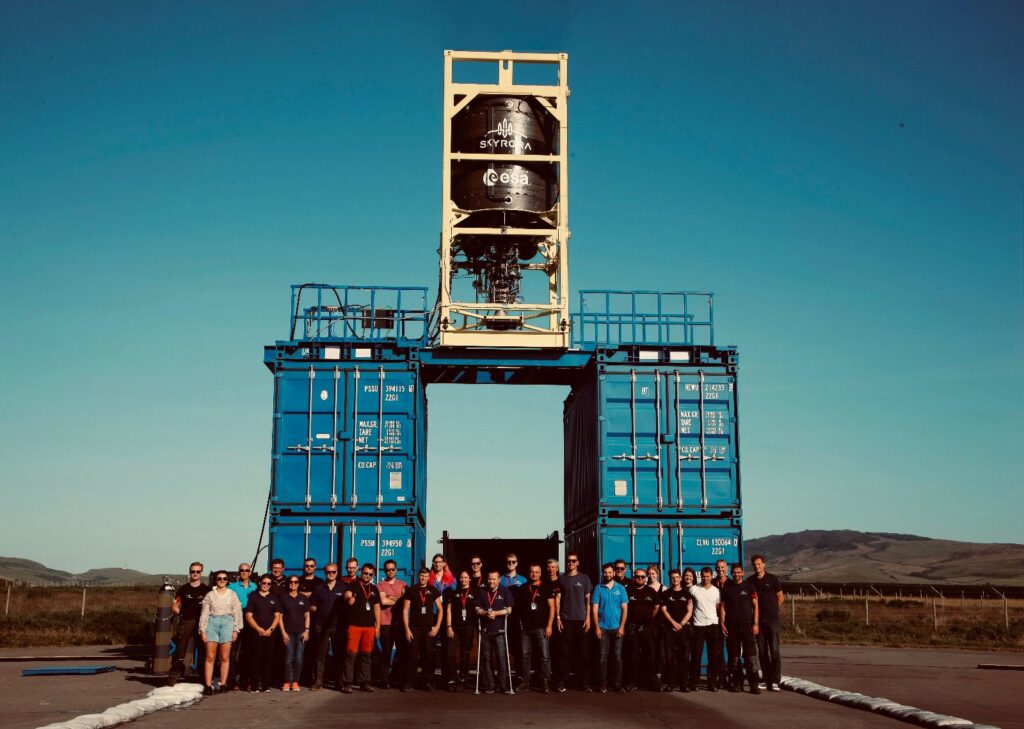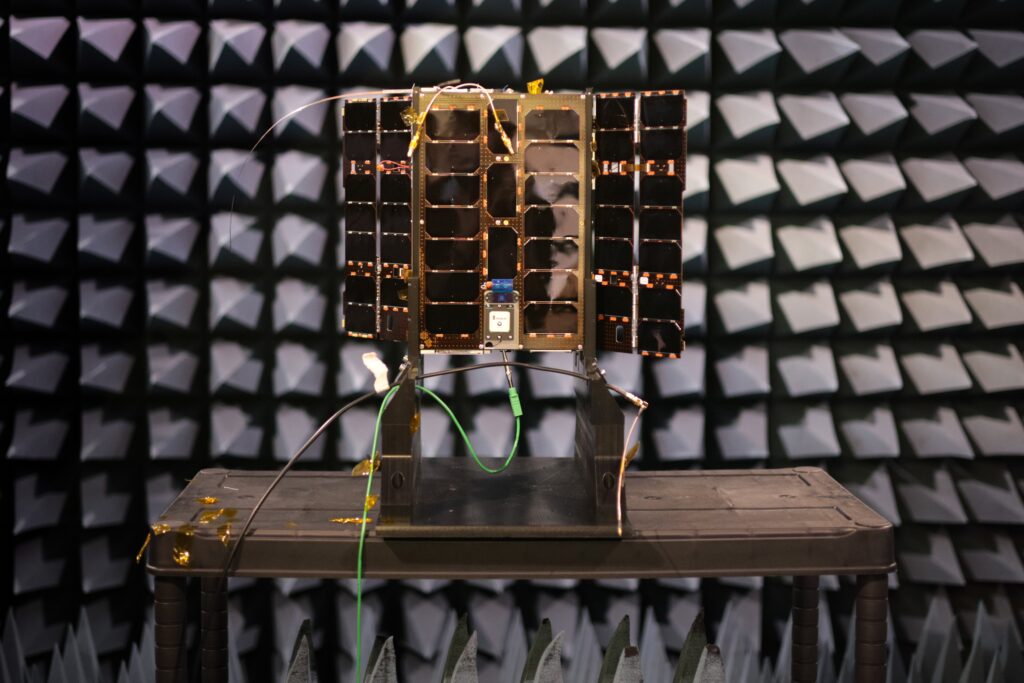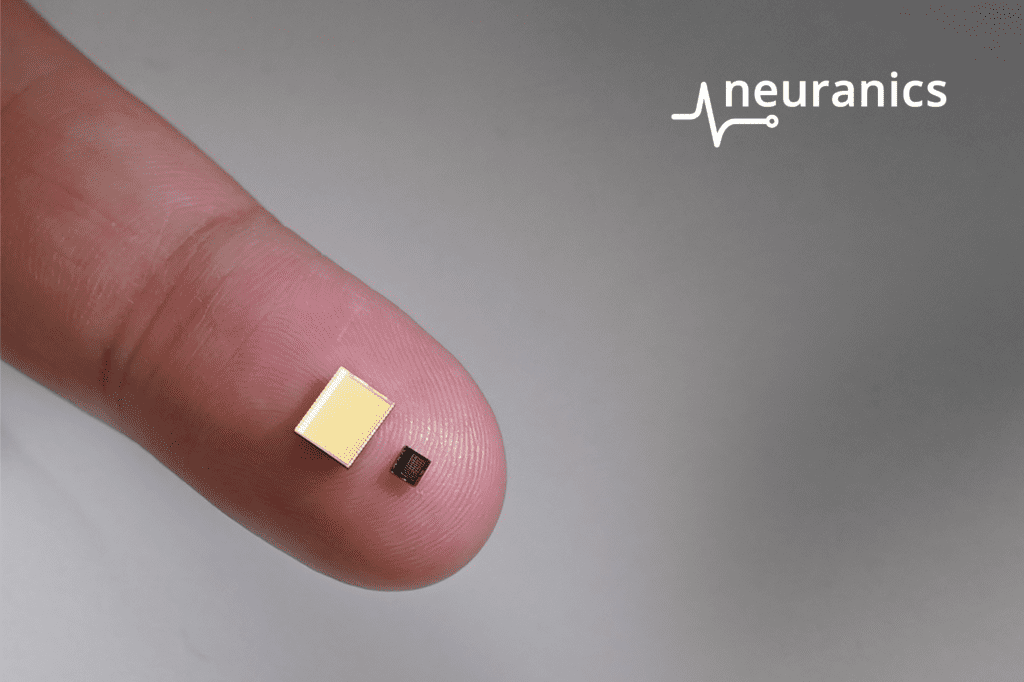The Glasgow City Region Investment Zone includes six short-listed projects, within the three sub sectors of the Advanced Manufacturing sector.
The projects will now develop a series of business cases to move forward towards final approval of funding by Government.
The Projects
Spacecraft Manufacturing and Testing Centre
- Sub Sector: Space
- Lead Organisation: Skyrora
Skyrora is an innovative aerospace engineering technology company that aims to support plans for space sector growth and the increasing need for enhanced UK launch capabilities, by developing orbital and sub-orbital launch vehicles.
The proposed project is for the construction of a Spacecraft Manufacturing and Testing Centre in Glasgow City Region. In collaboration with industry, Skyrora intends to enhance its capability to deliver launch vehicle and satellite solutions, additive manufacturing and other space technologies. This will enable breakthrough developments, including research into nationally unique technologies; e.g. rocket engine components (including turbopumps), launch vehicle aerostructures, in-orbit servicing and manufacturing platforms, small satellites, robotics (industrial and in-space) and carbon fibre products. The UK space ecosystem will be enhanced in several ways, particularly with a new rocket engine turbopump test stand and by offering launch-connected and sustainable testing for space applications.
With Skyrora’s extensive 200+ years of collective rocketry experience and a successful deployment history of 350+ tonnes of payload, they are well-positioned to spearhead this project within GCR for the UK space industry.

Platform for Scaling Responsive Space Systems Research, Innovation & Manufacturing (PRISM)
- Sub Sector: Space
- Lead Organisation: University of Strathclyde with a range of partners
Project PRISM will increase the capacity for growth for the Space Sector by connecting and integrating the full pathway of support for R&D, product development, testing and validation, manufacturing scale-up, deployment and launch and data services.
Pending approval, the £100 million project (£33.2 million funding, £67 million co-investment from industry) will deliver new infrastructure through two phases, to create new, advanced infrastructure across Glasgow City Region that will:
- Accelerate the design, build, test, manufacture and deployment of space technologies into the market
- Enable researchers, innovation partners, industry and government customers to collaborate rapidly to develop and scale technologies through TRL levels 1-9.
- Reduce businesses’ barriers to collaborating with key end customers, including large primes and government agencies, opening new markets for growth.
- provide easier access to secure infrastructure, specialised equipment and facilities needed to scale the development and launch of cutting-edge space technologies, reducing capital investment requirements.
- provides seed funding for opportunities for collaborative R&D, fostering innovation and reducing risk whilst leveraging existing innovation ecosystem assets & support.
- Deliver a skills & training pathway to deliver a diverse future workforce for the sector, ensuring the UK has the talent it needs to be a leading player in the global space economy.
The project is led by the University of Strathclyde with support from AAC Clydespace, SaxaVord Space Port, Spire, Orbex, Skyrora, Craft Prospect, BAE Systems, Trade in Space, Benchmark Space, Leonardo, Spirit Aerosystems, AWE, NMIS, The National Robotarium, Satellite Applications Catapult, Tweed Property, Space Forge, Simera Sense, Xona Space, Amentum, ADS, and Space Scotland.
PRISM leverages the UK’s strategic launch capabilities and enables direct connection for collaborations across the sector with Government, Industry and Academia, maximising our ability to support Critical National Infrastructure & Security and Resilience and will create a UK asset based in Glasgow City Region.

Strategic Investment in Glasgow’s Semiconductor Sector to Develop Advanced Manufacturing Capacity for Sensor Technology
- Sub Sector: Semi-conductors
- Lead Organisation: Neuranics Limited, Kelvin Nanotechnology (KNT), University of Glasgow (James Watt Nanofabrication Centre - JWNC)
Neuranics, in collaboration with Kelvin Nanotechnology (KNT) and the University of Glasgow, is leading a strategic investment to establish an advanced semiconductor manufacturing capability in Glasgow. This initiative will create a state-of-the-art nanofabrication centre, enabling full fabrication of magnetic sensors in the UK, reducing reliance on overseas facilities and strengthening domestic supply chains.
Scotland currently lacks the nanotechnology fabrication infrastructure needed for scaling production, forcing companies to outsource manufacturing, leading to higher costs, delays, and limited control over intellectual property. This project will bring world-class Ion Beam Etch equipment to Glasgow, allowing Neuranics to manufacture ultra-sensitive Tunneling Magnetoresistance (TMR) sensors while also enabling other technology companies and researchers to utilise the equipment for their own advanced manufacturing and semiconductor applications.
This investment will also enhance the capabilities of KNT and the University of Glasgow’s James Watt Nanofabrication Centre (JWNC), expanding their fabrication expertise and strengthening their role as key players in Scotland’s semiconductor and quantum technology ecosystem. By adding cutting-edge manufacturing processes, the project will attract new research collaborations, industry partnerships, and commercial opportunities to the region.
The project will create over 100 highly skilled jobs, bringing in top global talent while also offering entry-level roles and apprenticeships to support local workforce development. It will establish Glasgow as a global hub for advanced manufacturing, ensuring the region remains competitive in the fast-growing semiconductor and nanotechnology industries.
Additionally, the project will drive innovation in bio-signal monitoring, advancing next-generation heart monitoring devices and gesture recognition systems, positioning Glasgow at the forefront of emerging health tech and human-machine interface solutions.
As a catalyst for economic growth, sustainability, and technological leadership, this project aligns with the GCR Investment Zone, Scotland’s National Strategy for Economic Transformation (NSET), and the UK Government’s Levelling-Up Strategy, ensuring that Glasgow remains a leader in semiconductor and sensor technology development.

Laser Supply Chain and Advanced Packaging
- Sub Sector: Semi-conductors
- Lead Organisation: University of Glasgow
Semiconductors, Photonics and Quantum have been identified as critical technologies with tremendous growth potential. Glasgow City Region (GCR) has a vibrant critical technologies supercluster and can benefit from this growth. The very nature of these emerging markets, however, means they are high risk; GCR companies face challenges of getting new products to market quickly and lack an end-to-end local supply chain needed for commercialisation and scale-up. These challenges lie beyond the scope of individual companies. This proposal funds the infrastructure and resources to help address this.
The project utilises the James Watt Nanofabrication Centre – a world-class open-access semiconductor facility and invests in new infrastructure to enable the industry to develop, test, demonstrate and de-risk technology development programmes. It will undertake projects that are too large for any local company, providing access to new markets, accelerating sales and job growth, and leveraging local R&D investment and innovation. This is half of a joined-up project with the Strathclyde University / National Manufacturing Institute of Scotland (NMIS) to create an end-to-end open-access semiconductor infrastructure that creates world-leading capability in the emerging area of advanced heterogeneous packaging.
The funding will create in GCR:
- The successful Critical Technologies Accelerator engineering team, created using Innovation Accelerator funding in 2023, enabling it to expand its activities working alongside the R&D teams of local companies, positioning it for long-term sustainability.
- A UK open-access laser test centre: leverages £3m investment from NPL to help local companies verify the performance of their products and win business from new customers.
- A national hub in semiconductor advanced packaging: invests in key capabilities and partnerships with global industry players to create a unique capability in the UK, attracting worldwide research and technology partners to the region.

National Centre for Advanced Semiconductor Packaging (NCASP)
- Sub Sector: Semi-conductors
- Lead Organisations: National Manufacturing Institute Scotland (NMIS), Compound Semiconductor Applications Catapult (CSAC), Sivers Photonics, Alter Technology
This project will establish a national centre for manufacturing scale up of advanced semiconductor devices such as photonics and power electronics. It consists of open access capital equipment and an industry-led development programme.
Glasgow City Region (GCR) has global leading companies with innovative technologies that cannot be fully commercialised with a local supply chain as none exists across the whole value chain.
This project enables manufacturing at scale, allowing companies to grow and collaborate to create a local supply chain and develop an open-access scale-up facility that can be used to turn volume manufacturing opportunities into local jobs and income.
Strengthening the local supply chain reduces the need to offshore volume manufacturing, supports sector growth and expansion into other markets as barriers to entry (e.g. initial engineering cost, volume) are reduced. With strong alignment to the Regional Economic Strategy, Scottish Government NSET and UK Government Strategy, the project will drive economic growth in GCR, as well as developing products critical to the Net Zero transition.
The project contains industry and research partners, which will see 300 new jobs created, £800M additional industrial revenue, and the onboarding of at least two new manufacturing companies into the GCR. Skills and training will be at the forefront of the project to develop the high-value workforce, required to grow this industry in the GCR.
Maritime Supply Chain Innovation at the Scottish Marine Technology Park
- Sub Sector: Maritime
- Lead Organisations: The University of Strathclyde, Malin Group, West Dunbartonshire Council and Industry Partners.
The Maritime Supply Chain Innovation Centre (MSCIC) and associated infrastructure will transform a brownfield site in Old Kilpatrick, directly enabling the delivery of the initial phases of development at the Scottish Marine Technology Park (SMTP).
Investment Zone funding will support the MSCIC’s development, including a new heavy-lift quay, contamination remediation, and platforming, all aimed at fostering future investment and the full build-out of SMTP.
Once established, the MSCIC and SMTP will provide a collaborative environment for innovators, driving sustainable growth. The park will align with Glasgow’s economic and skills strategies, supporting new market opportunities, workforce upskilling, and community engagement. It will foster cross-sector collaboration and innovation, offering spaces for entrepreneurs to thrive.
The MSCIC will address maritime supply chain productivity challenges and promote sustainable working practices. It will offer research and development support through a rapid technology deployment model, backed by a self-sustaining ecosystem funded by ongoing SMTP revenue. This will create hundreds of local jobs and fresh opportunities for the local populace and wider maritime industry, today and for future generations, with the full SMTP development expected to generate over 750 high-value, full-time jobs and 450 construction jobs.
In addition, the project is anticipated to positively impact over 6,000 maritime-related jobs across the Glasgow City Region and create opportunities in other sectors. The economic impact of the project is projected to add £340.84 million in net GVA to Scotland’s GDP over 25 years.
This project will be delivered through a partnership between the University of Strathclyde, West Dunbartonshire Council, industry partners, and Malin Group, creating a sustainable ecosystem that benefits both the region and Scotland’s maritime sector.